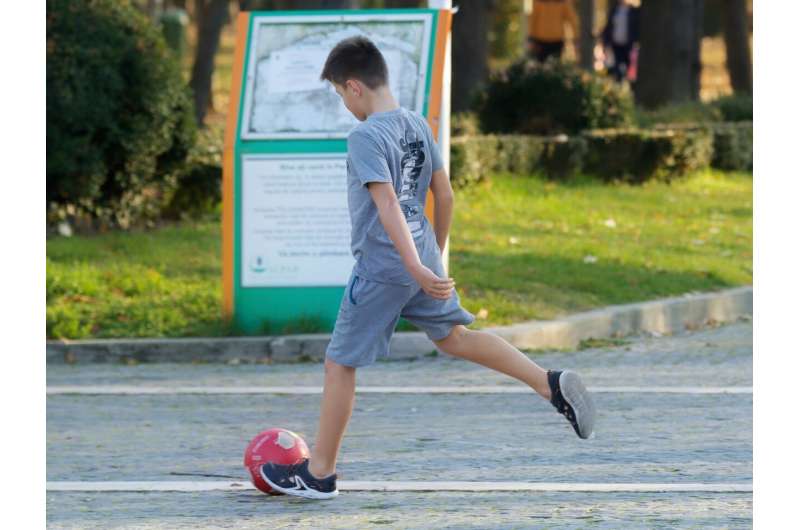
A team of researchers at the University of Hong Kong, working with one colleague from Sun Yat Sen University in China and another from Georgia State University in the U.S., has found that regular aerobic exercise can reduce symptoms in teens found to be suffering from depression.
In their paper published in JAMA Pediatrics, the group describes analyzing data from several medical databases to learn more about the impact of regular exercise on young people. Eduardo Bustamante, María Enid Santiago-Rodríguez and Jared Ramer with the University of Illinois Chicago, the University of Michigan and the University of Massachusetts, respectively, have published an editorial in the same journal issue summarizing findings in recent years regarding the health benefits of exercise for people in general and outline the work by the team on this new effort.
Prior research has suggested that regular exercise can provide a wide range of health benefits for most people, including brightening mood and reducing mental stress. In this new effort, the researchers found that regular exercise for young people over age 13 with depression can lead to a reduction in symptoms.
The work involved analyzing information in the EMBASE, PsycINFO, PubMed, CINAHI and SPORTDiscus databases, focusing most particularly on changes relating to symptoms in young people diagnosed with depression who have begun an exercise activity such as swimming, dancing or running.
The researchers found that engaging in regular aerobic physical activity significantly reduced symptoms of depression in young people over 13 diagnosed with depression. The researchers also found that the activity had to be regular, such as three times a week, and it had to continue; otherwise, symptoms returned.
The group also conducted a secondary analysis that focused on which young people would reap the most mental health benefits from exercise. They found it to be those young people over 13 who had already been diagnosed with depression.
The researchers also found that mental health benefits seemed to be the greatest with unsupervised exercise programs. And intensity did not seem to matter much. What counted the most was regularity.
More information:
Francesco Recchia et al, Physical Activity Interventions to Alleviate Depressive Symptoms in Children and Adolescents, JAMA Pediatrics (2023). DOI: 10.1001/jamapediatrics.2022.5090
Eduardo E. Bustamante et al, Unlocking the Promise of Physical Activity for Mental Health Promotion, JAMA Pediatrics (2023). DOI: 10.1001/jamapediatrics.2022.5096
Journal information:
JAMA Pediatrics
Source: Read Full Article
